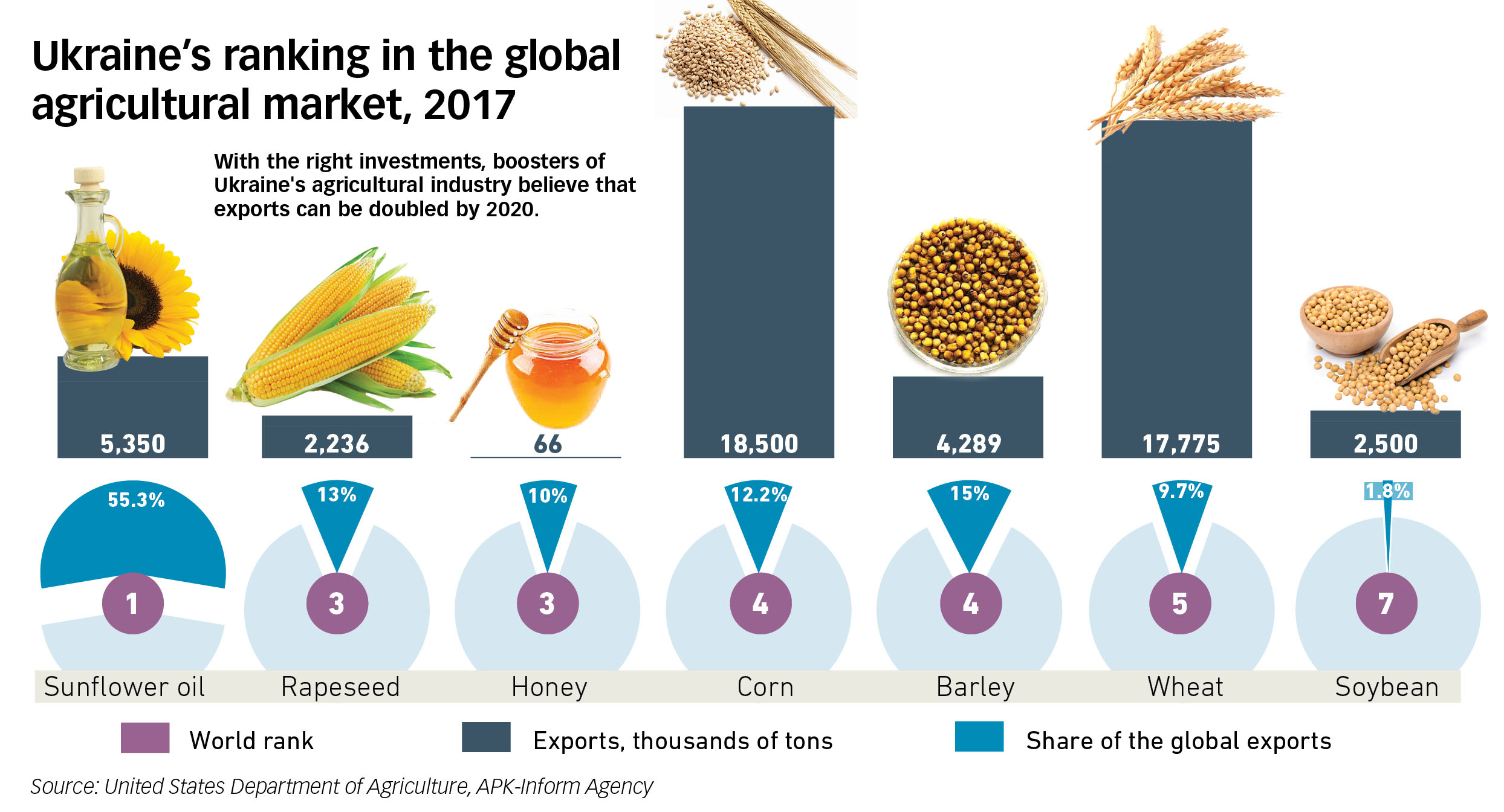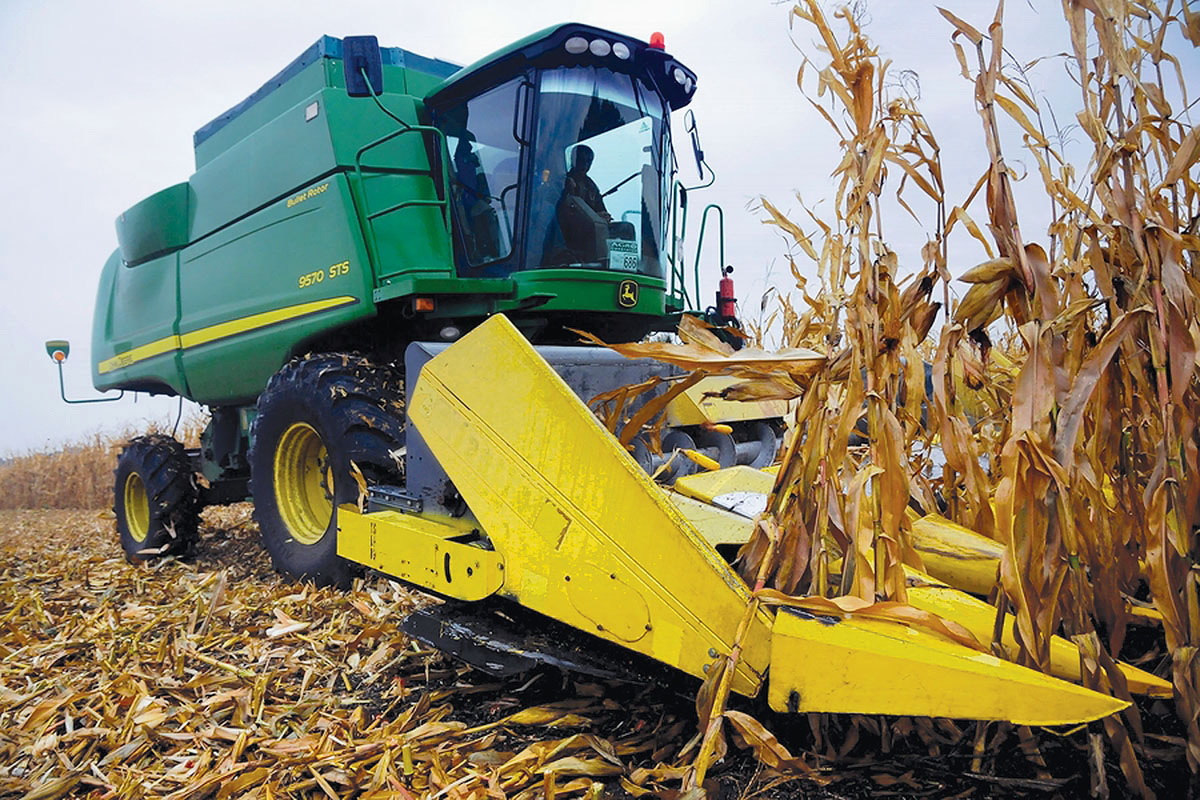With a multibillion-dollar sector at stake, the issue of almost two decades — Ukraine’s moratorium on the sale of agriculture land — is about to face another vote by parliament this December on whether to be extended or not.
For the past 15 years, the moratorium extension was a given. Most parliamentarians didn’t even give it a second thought. Corruption and populism, which peaks during election years, are the reason why Ukraine has no functioning land market like most democratic nations.
But 2019 might be different as public awareness grows that having the right to sell land, or borrow against its value, is a blessing and not a curse.
Ukraine’s friends in the West, includng the European Union, are trying to get Ukraine’s politicians to see the light. Olga Balytska, head of real estate practice at PwC Legal Ukraine, said growing awareness of the economic consequences has increased the chances that the moratorium will be lifted.
But it’s still uncertain. Politicians “are afraid a little bit of public opinion but they asked to create such an atmosphere that they will be forced” to lift the moratorium, Balytska said.
Positive outlook
Dmytro Lyvch, project manager and head of analytics at EasyBusiness, a Ukrainian policy think tank, says that more votes are needed in parliament to lift the moratorium. The Constitutional Court rejected requesets to end the moratorium twice, leaving it to parliament.
“The number of members of parliament is increasing because in 2015 there were only three that voted against the extension of the moratorium on land market sales. In 2016, it was like seven members of parliament. And in 2017 it was up to 60 members of parliament.”
Lyvch estimated that up to 100 members of parliament will vote against the extension.
Others, such as Serhiy Fursa of Dragon Capital, are less optimistic.
“It is pre-election period and when we are looking at polls, 70 percent of the population is against opening the land market,” Fursa said. “I think we will come back to this idea only in 2020.”
But even if the moratorium is lifted, there is another bottleneck. Passing a good draft law will be much more difficult in order to win a 226-member majority in the Verkhovna Rada.
Of three draft laws, the one that is most popular is submitted by Member of Parliament Oleksiy Mushak.
“It was a draft law that was presented by Yulia Tymoshenko in 2008 and Mushak resubmitted this draft law,” Lyvch said. “It is the most liberalized draft law ever that has been presented… foreigners can buy land, legal entities can buy land.”
But Tymoshenko, a leading candidate for president in March, has made a 180-degree turn and is now against liberalizing the land market.
Economic consequences
Foreign businesses are hungry for Ukraine’s fertile soil and 40 million hectares. The World Bank estimates that Ukraine’s annual gross domestic product will increase up to 1.7 percent annually with a free land market. That’s billions of dollars more each year that are pumped into the economy.

With the right investments, boosters of Ukraine’s agricultural industry believe that exports can be doubled by 2020.
More corruption
There are two common corruption schemes related to Ukrainian agricultural land.
One is when a private entity unofficially sells its land to another party at a low price. Once the purchase is done, this gives greater incentive for the seller to attempt to steal it back in a raider attack since no official documents of the sale exist.
The other scheme involves government-owned land — or roughly one fourth of Ukraine’s arable land. A private entity pays bribes to the government entity to use the land and doesn’t pay taxes.
“Rental price in Ukraine is enormously low. It is like $50-$70 per hectare on average compared to Central European countries at the level of $200-$250 hectares per hectare, and compared to Western European countries where rental prices could be up to $700,” Lyvch said.
Because the market has been so regulated, little data exists on Ukraine’s arable land. For example: experts cannot say what percentage of its land is owned by small farmers versus big agroholdings, and experts even find it difficult to name Ukraine’s market price since technically the market doesn’t exist.
Historical moment
Still, experts like Lyvch and Balytska believe that this year could be a turning point since the European Court of Human Rights got involved. The court suggested in May that the Ukrainian government should open up its land market. The court also declared that the moratorium on farmland sales violates human rights since Ukrainian farmers — an estimated seven million of them — are not allowed to manage their property freely.
“According to the constitution of Ukraine, international law has priority over Ukrainian law,” Balytska said.
To raise public awareness, EasyBusiness launched the farmland.in.ua platform so that an average Ukrainian farmer can apply to the European court.
“Right now there are two land owners that won this case in the European Court of Human Rights,” Lyvch said.
Balytska said people who know their rights “will be more powerful.”
Myths and fears
But myths, stereotypes and fears dominate.
One fear is that foreigners will buy up all the land. This has not been the case in other nations.
“The highest share of land owned by foreign companies is in Romania and it’s like 11 percent,” Lyvch said. “But Romania had some of the highest compiled growth rates for farmland during the last 10 years at the level of 37.5 percent.”
The other fear is that farmers will automatically lose their property and will not have the right to rent, which is not true.
Most Central European countries which underwent land reform in the 1990s and joined the EU have reaped major benefits and seen land price hikes.
“For example, in Poland the land prices are like $10,300 per hectare; in Romania — $6,500; in Bulgaria, $4,500; and it’s much higher than in Ukraine,” Lyvch said.

Foreign agricultural investors such as AgroGeneration are interested in the end of the land moratorium in Ukraine which will allow land owners to sell their land as well as rent out at higher prices. This will create a more developed sector and benefit Ukraine’s economy altogether as more transparent businesses will compete against each other, experts say.
But Ukraine, with its highly fertile soil, could be making much more.
“There are significant productivity gaps between Ukrainian and European companies. It’s like the level of 25 to 40 percent lower than European countries if we are talking about yields per hectare for traditional crops,” Lyvch added.
In addition, Ukrainian laws can set certain restrictions on entities related to Russia, an aggressor state, and China, a potential aggressor state.
Oligarch grab
The other major fear is that Ukrainian oligarchs will take over all of Ukraine’s land. But Fursa says this is not the case, as land prices will go up exponentially.
“Generally, people in Ukraine have a lot of myths in their minds, and it’s completely not related to what will happen when the market will be opened,” Fursa said. “When you look at Ukrainian oligarchs, they never buy something for its real price.”
But even Ukraine’s biggest agrarians want Ukraine’s farmland market to open, at least partially, albeit with protectionist restrictions against foreigners.
American John Shmorhun, CEO at AgroGeneration, one of Ukraine’s biggest agricultural firms with about 120,000 acres of arable land, says that despite the rent price hikes that will come with lifting the moratorium, his company supports opening the market.
“Ukraine needs investment in technology, infrastructure, you name it,” Shmorhun told the Kyiv Post. Liberalizing the market will fix this, the U.S. investor said.
And the Ukrainian Agribusiness Club, an association of around 100 enterprises, has signed a memorandum advocating for opening the land market.
“They want to open the market because they want to know what will be in 5–10 years, they want to think more in the long-term perspective,” Lyvch said.
The moratorium especially puts a plug on the development of Ukraine’s value-added sector of high-margin crops like fruits, berries and vegetables since the majority of the agrarian sector consists of traditional crops for export.
“The president and other politicians might be scared to lift (the moratorium) before the elections, but it should be done anyway. We can’t wait any longer,” Balytska said.
